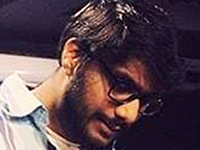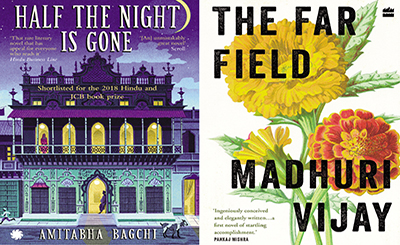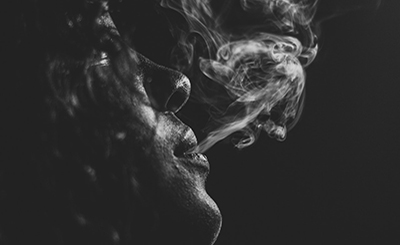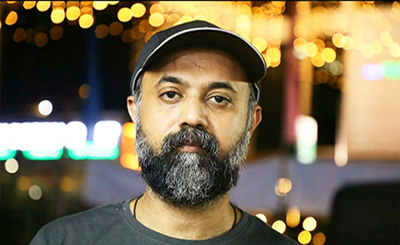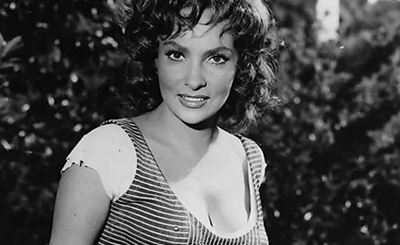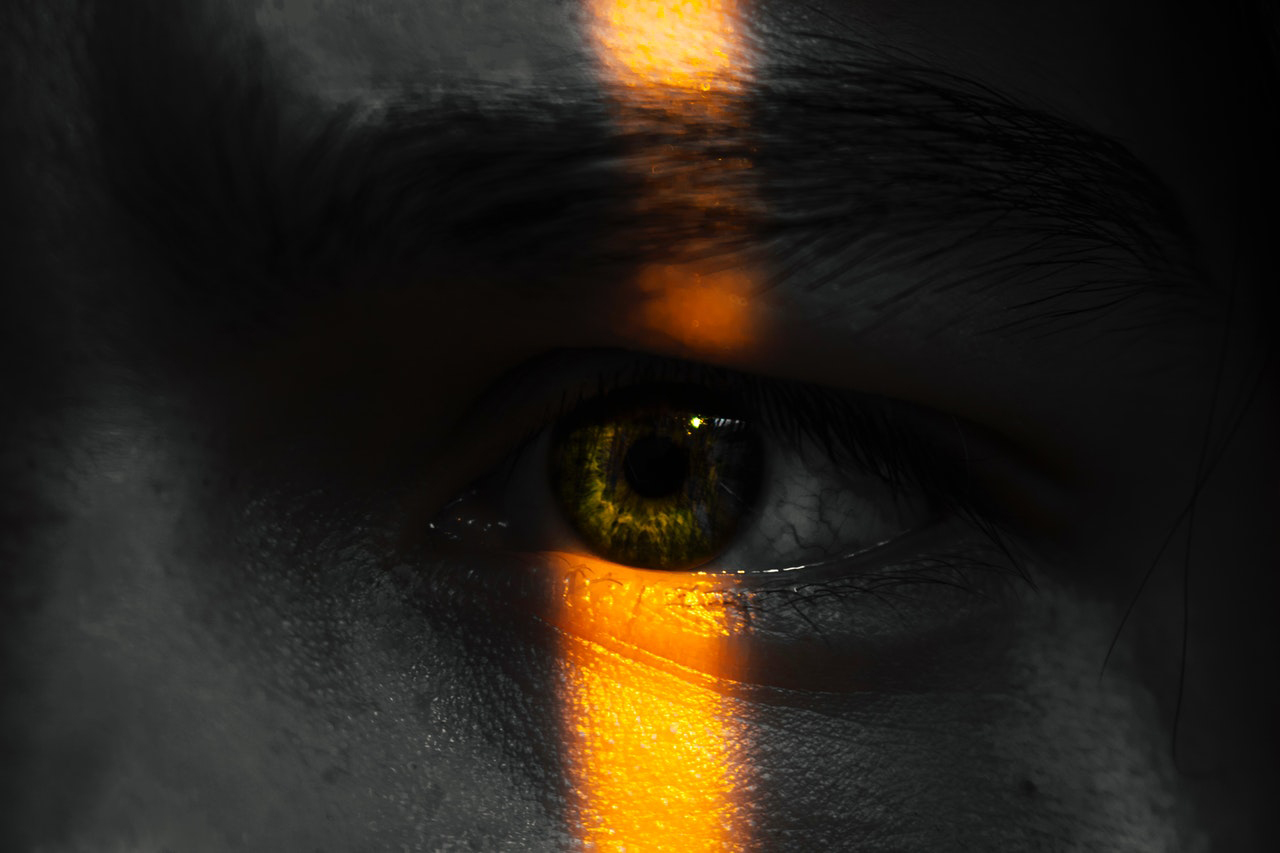
Six pieces of micro fiction by the Mumbai-based author of Three Doors, a collection of poems, curated by Palash Krishna Mehrotra
Donate Now
Strange Things That Happened Before My Mother’s Death
In the week before my mother passed away, there were signs, or what seem like them now in hindsight. At the time, though, the events didn’t appear to be very out of the ordinary — there did appear to be some sort of pattern, but certainly not one ominous enough to lead one to suspect what was to eventually happen.
For instance, there was the injured pigeon my father found in the garage. He brought it into the house and offered it a plate of rice. I still remember clearly the pigeon limping in circles in the washbasin. I cut a hole in a shoebox, looked up the number of a bird shelter. I got in touch with a Jain temple that kept a cage filled with just such injured birds. My father delivered him in the car.
And then there was the family we kept running into. Though that’s a sign I haven’t quite been able to interpret. It was a young couple and an infant, the boy was an acquaintance, a batchmate in school, a familiar face. We saw them first at one mall, my mother and I. And then I saw them again, at another mall, while I was picking up a Christmas present for my niece. They hovered in the background, in the periphery of my vision, as the salesperson wrapped up the gift. It was a mysterious coincidence.
And then we ran into them again, this time with the rest of the family, just a few days before my mother’s death. At a party, where there were many more familiar faces, but where these, given the preceding encounters, stood out.
Their child was pink, very chubby, very cute. She wore a bonnet; they carted her around in a pram. I think I smiled at her, at the mother.
Sentences for Young English Learners
When you go out, please close the door.
And don’t bother coming back. I’ve had enough of you. If I put up with you this long, it was only because I was afraid of being lonely. Which doesn’t mean that I’ve overcome my fear. At least not completely.
Please don’t bother calling, snivelling over the phone. Getting any of our friends to talk to me. It will only amuse me. Your terrible neediness. Your own cavernous fear of being alone.
I’ll deal with my despair, change the locks once you’re out.
The missing baby was found in the closet.
We searched long and hard, looked for it everywhere, behind the curtains, under the dining table. We even looked under the mulberry tree. Where otherwise it was always yelling its head off, this time it was as quiet as a mouse. Where, we wondered and wondered, could it have gone?
Its mother didn’t know; she stared blankly, numb and pale.
Its father didn’t seem to care. He shushed us, shouting angrily into his phone.
The grandmother turned the other way and kept on praying, enveloped in wisps of grey hair and smoke.
The grandfather, they said, was simple.
This child for which they had longed and longed, O where could it have got to?
I saw my teacher standing in front of the restaurant.
‘Good-morning-Sir,’ I sang.
‘Good morning,’ he replied gruffly, an inveterate drunk. ‘Good morning. Sit down.’
Bella was invited to the VIP party.
Cuz shes a slut.
Some do volunteer work at an orphanage.
The children are starved; there are cigarette burns on their arms and chests, welts. They stare out of terrified eyes at the tabloid camera, another camera, through which the world at large will see them.
Their limbs are thin as twigs. Can they speak? Their mouths are dry with fear. Give them water: it dribbles from their lips. Reach out to console them: they tremble like flames at the threat of our touch.
Everything will be all right now, now we know, now we’ve exposed this house of horror, it will be all right.
Suddenly, the man got up and started running.
No one knew why. They were all engrossed in the film unfolding before them, on the edges of their seats, thrilled, gasping at each unexpected twist, rejoicing at each death-defying stunt.
It was the latest instalment in a hugely popular superhero franchise. There were many children in the audience. Everyone was confident their hero would defeat this new monstrous villain, would once again, against all odds, end up saving our forever-imperilled planet.
And then this man leaped out of his seat. He stole up to the screen and stood there, as if to apologise for and explain some technical failure, when there was none. In the manner of an amateur magician, he pulled out his semi-automatic from inside his baggy jacket. There was no applause, only terrified screams.
Have you heard of Hillary Clinton?
Have you heard of Bill? Have you heard the one where…?
You always make me happy.
But I’ll be damned if I let you know.
Three Sketches of a Former Colleague
He is so broadly built his umbrella fails to protect him from the rain; he arrives with soaking shoulders, wet shirt-tails trailing.
One morning exiting the elevator, bleary-eyed, you find him hulking in the corridor, a cup of coffee in one hand, a cigarette in the other. It seems to you he will dip that cigarette in his coffee, munch down one first and then promptly reach for another from his pocket. It seems to you if he calls out coaxingly enough, the pigeons brooding in the niche below the ceiling will fly down to peck on his stubbly head.
He emails you essays on Said. You ask him about the ontological argument. At an untrendy pub, he discourses with us on Rushdie, the subaltern, his historical novel-in-progress (which he hopes will make literary history). After he’s quit, he inquires about women for whom he still lusts.
Dogs Outside the Doctor’s Clinic
The corridor leading up to the doctor’s clinic smells of dog. Sometimes you find two or three of them, eyes moist with innocence and indolence, sprawled in the corridor, licking their paws or noses, bowls of water laid out for them to drink. It’s like a scene from a video game — a passageway with dim or flickering lights, the dogs benign creatures who equip you with charms and replenishments for battle with demons lurking behind panelled oak doors. The scent of dog is heavy upon the air, as overpowering as the odour of medicine and antiseptic will be in the clinic. It’s strange that you should have to traverse a trail of dog smell into the doctor’s clinic, from one odour to another, an olfactory bridge, both repulsive in their own way, yet certainly not empty of positive emotional associations: compassion, tenderness, healing, wholeness. It’s a dog’s life, he died a dog’s death, the washerman’s dog who belongs neither to the house nor the ghat, all of these phrases run through your head, like your hand through dog fur; the fur is dirty, this dog does not have a collar, my body is aching, you think, what is this illness that has come over me, this pain that I experience as powerfully as the odours I inhale, that I feel intensely yet cannot accurately comprehend or articulate? You contemplate the symptoms, consider worst-case scenarios, even death, final and untimely, a panicked rushing out of somewhere to be caught in blinding headlights. You yelp inwardly: Whom does this life belong to? I entrust it to my doctor. And what if I stop going to this doctor and start visiting another (so he loves animals, but what about the stench, is this any entrance for patients?)? How drastically will I alter the course of my life? How life-changing will the consequences of such a decision prove to be?
Morning
The sweeper woman skims the floor with her broom, as if afraid to hurt it. (Which begs the question: Which is more delicate, the broom or the floor? Or perhaps her arm?)
The garland seller comes skipping down the steps, bright marigolds streaming out of his hands.
The liftman grumbles: ‘The other lift is not working. Why should I call the repairmen? Why should I waste my money? It’s two days now. Bastards, let them call them on their own. Let them call them if they want to.’
Beck sings: ‘I’ve lost all my defences...’
Snakeboy
He slithers out of the changing room and into the gym area, in his black track pants and black T-shirt, his uniform. He has a peculiar, elongated head — shiny eraser to the supple pencil of his body. His hair is close-cropped.
‘Even if nobody else comes to the gym, he will,’ one of the gym trainers, who has made it his moral obligation to size up every member, declares of him.
Long after he has slid through the door, an odour lingers in the changing room, pungent and nauseating. Accumulated perspiration, absence or evanescence of deodorant, unwashed uniform…
‘Even if everybody else washes their clothes, he will not!’ the trainer announces, beaming beefily as he hands out the Most Regular Gymmer Award (and perhaps the distinguished panel of judges considered him also for the trophy for Most Malodorous, or the twin special honour of Most Regular and Most Regularly Malodourous?) to Snakeboy at the annual function. ‘He’s too busy making it on time every day to the gym!’
Snakeboy glides with dramatic speed through the audience, nearly invisible in his camouflage gear. People squeal, throwing up hands and legs, but those with sharper noses are forewarned of the awardee’s slippery approach…
Comments
*Comments will be moderated



